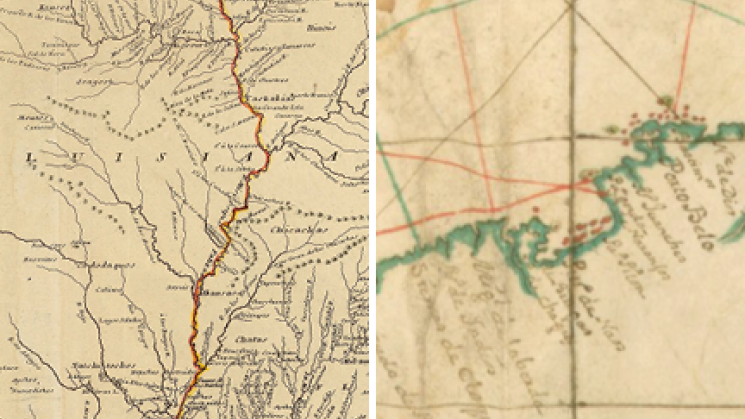Presentations by Sebastián Gómez and Pablo Hernández Sau

Please join us for presentations by JCB Fellows Pablo Hernández Sau and Sebastián Gómez.
Pablo Hernández Sau (European University Institute, Florence, Center for New World Comparative Studies Fellow) presents "The Mississippi Region as a trans-imperial frontier (1770-1800)." In 1803 Napoleon sold Louisiana to U.S.A. for 290.034 mg of gold. That was the end of a Spanish colonial experiment in a multi-layered region marked by divergent conceptions of dominion and sovereignty. From 1763, the management of this colony supposed a challenge for the Spanish authorities which had to cope with previous French institutional structures; the ignorance about indigenous population; and a fluid frontier with the British and American empires. This presentation examines the Mississippi region as a trans-imperial frontier characterized by the fluidity of knowledges. Looking for a cross-referenced interpretation of JCB sources about La Louisiana, this talk introduces a tentative analysis of Spanish colonization of Louisiana as the result of a trans-imperial knowledge.
Juan Sebastián Gómez González (Universidad de Antioquia, Maria Elena Cassiet Fellow) presents "Smuggling and Rebellion: The Rise and Fall of the Confederate Societies in Panama, 1724-1750." The Confederate Societies of Smugglers known as Sacra Familia, Apostolado de Penonomé and Real Jurisdicción de Natá were organized around 1724, taking advantage of the arrival of foreign ships, which "maliciously" made landfall in Portobelo from continental and insular strongholds of Greater Caribbean and Atlantic World. Towards 1748, a good number of the smugglers had been executed, some thrown into jail and a few had escaped. Years later, when the societies no longer existed, something surprising was discovered about their ways of managing their businesses and their political relationships.